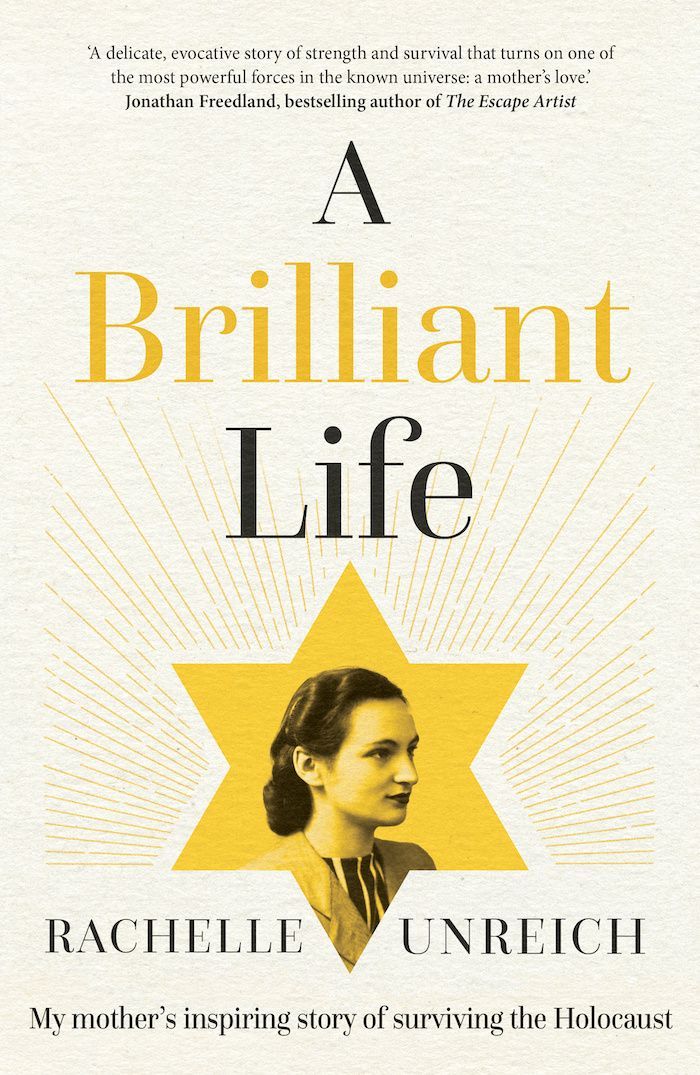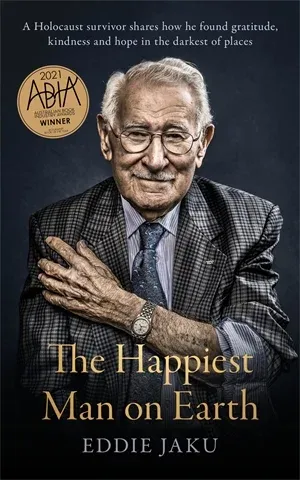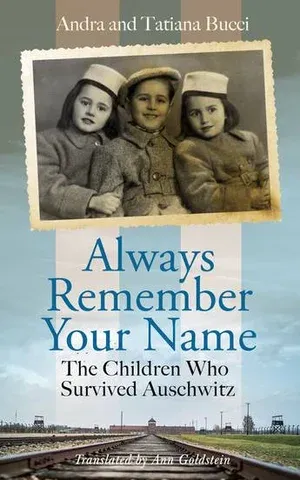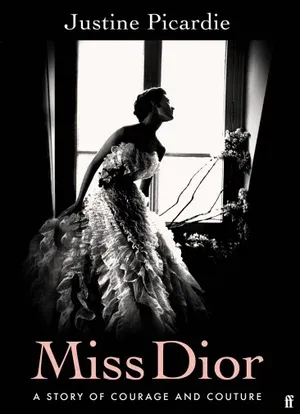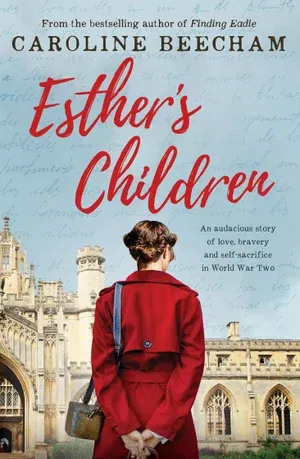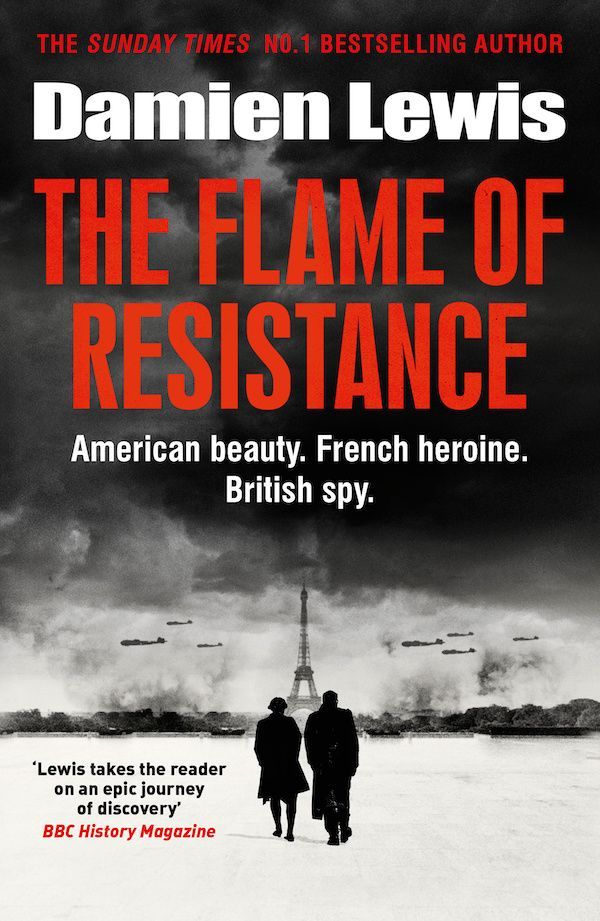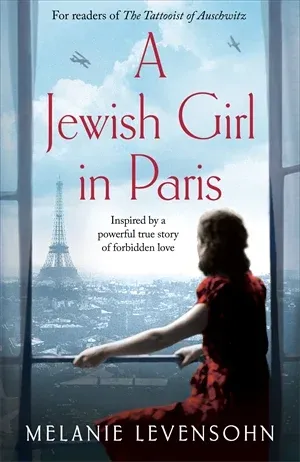A Brilliant Life
My Mother's Inspiring Story of Surviving the Holocaust
By Racelle Unreich
Published by Hachette Australia
ISBN:9780733650178
After seventy years since Mira Unreich was freed from her fourth concentration camp in World War II and before it was too late, towards the end of her life, her youngest daughter, Rachelle, interviewed her mother to ensure the story of her remarkably resilient life was recorded.
Rachelle Unreich is an Australian journalist who has worked in Australia and several other countries. Writing her mother's story she weaves the many aspects of her mother's life together. It is a heart rendering and heartwarming story of her mother's and other lives close to her.
The story begins with explanations of daily life in Mira Unreich's (nee Blumenstock) happy childhood in her home town in Czechoslovakia where people lived harmoniously side by side, as friends inter-mingling regardless of their faiths as they have done for many years. It was a happy life and childhood for her and her older siblings.
Thoughtfully, as part of the background, the author includes detailed descriptions for readers about the customs and facilities for observant Jewish life in the town. For quite some time after the War was declared the Blumenstock's and seven other families continued living in the town, albeit carefully as the swell of the support for the Naz's and anti-semitism grew throughout Germany, Austria and Europe. The family were able to continue in their business for a short while thanks to new laws whereby businesses had to be majority owned by Christians.
Drawing on Mira's vivid memory we read of the way the family had to go into hiding thanks to the kindness of their local friends but again, not for long. On the day they are ready to leave of their own accord, to escape the most unthinkable, something happens that upturns their lives. Their father, Dolfie, has insisted that each family member take money in various currencies with them sewn into garments which they would need to get to freedom and begin new lives.
Like so many others they didn't make it to freedom.Within hours of the scheduled departure something happened and instead they were bundled into cattle trucks by the Nazis. Men and women separated by ages and by health/strength. Little did they know, both told to go into the line that would end their lives. Seventeen year old Mira was forcibly held back and told to join another group of twenty.
As it transpires this incident was one of many that saved her life. On discovery and confiscation of her money, she became known as the "dollar princess" by the SS guards, which remarkably helped her at various times.
Throughout the story we read that there is an amazing and uncanny string of incidents that work in her favour, even in these despicable circumstances. It is something that follows her for all her life and remarkably after her death. Some moments are just too real to be considered as fanciful and co-incidental.
Subject to the most dreadful inhumane, wicked circumstances like millions of other people, this story is filled with interesting times of resilience and doing whatever had to be done to survive. Even on liberation other women with whom Mira had been in the concentration camps with acted selfishly towards her. Thanks to a kind man who joined this librated group with a group of other men on their walk home to Czechoslovakia this quickly changed as he berated them for their behaviour towards her.
Once they eventually made it back to the town/village that was once their home it was not a place she wanted to remain. Mira met a successful business man Pavel and they lived in several countries including having a fabulous life in Paris after the War and where she had her first three children. Later they moved to Melbourne, Australia. Sadly, Pavel was not happy there or within their marriage. He returned to Czechoslovakia leaving Mira to run their business and look after her three children.
Later s he meets and marries Manny Unreich who works with her in the business and they have their fourth child, Rachelle. I loved reading that Manny when asked how many children he has, said four as he embraced Mira's three children as his own. Mira had remarkable courage and a belief in the goodness of people even in the most difficult of times.
There are many outstanding takes from this remarkable story of a determined and resilient woman. We all go through some awful times in our lives, fortunately mostly none as bad as surviving the Holocaust, but apart from reading the heartwarming stories, the heartbreaking ones there is much more to be taken and learned from in, A Brilliant Life.
As for the times we are currently living in with a resurgence of pointless, baselessly ignorant hatred and anti-semitism, please do read this book. It is timeless.
This is independent review, I am not paid by the publishers, so.If you
Liked this review, Buy me a coffee

